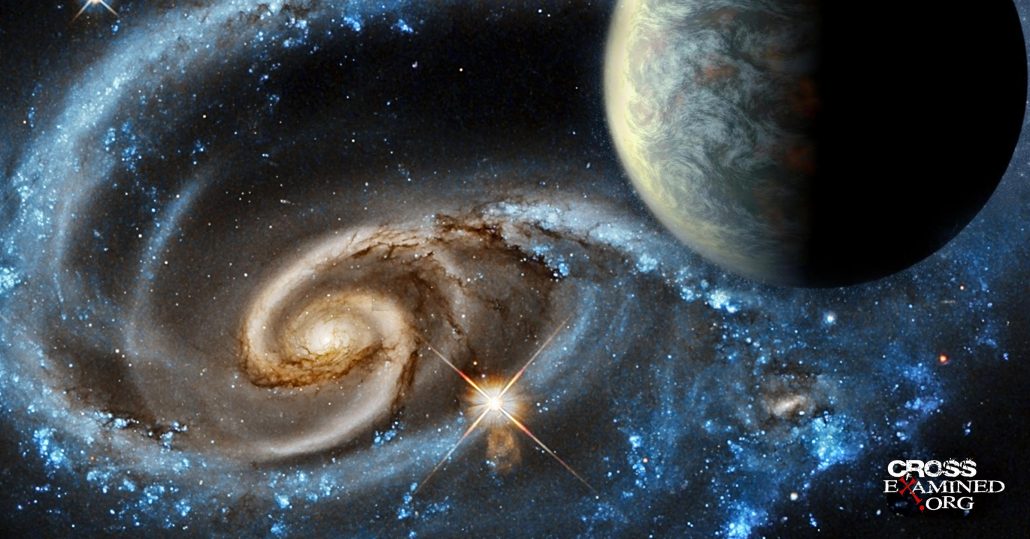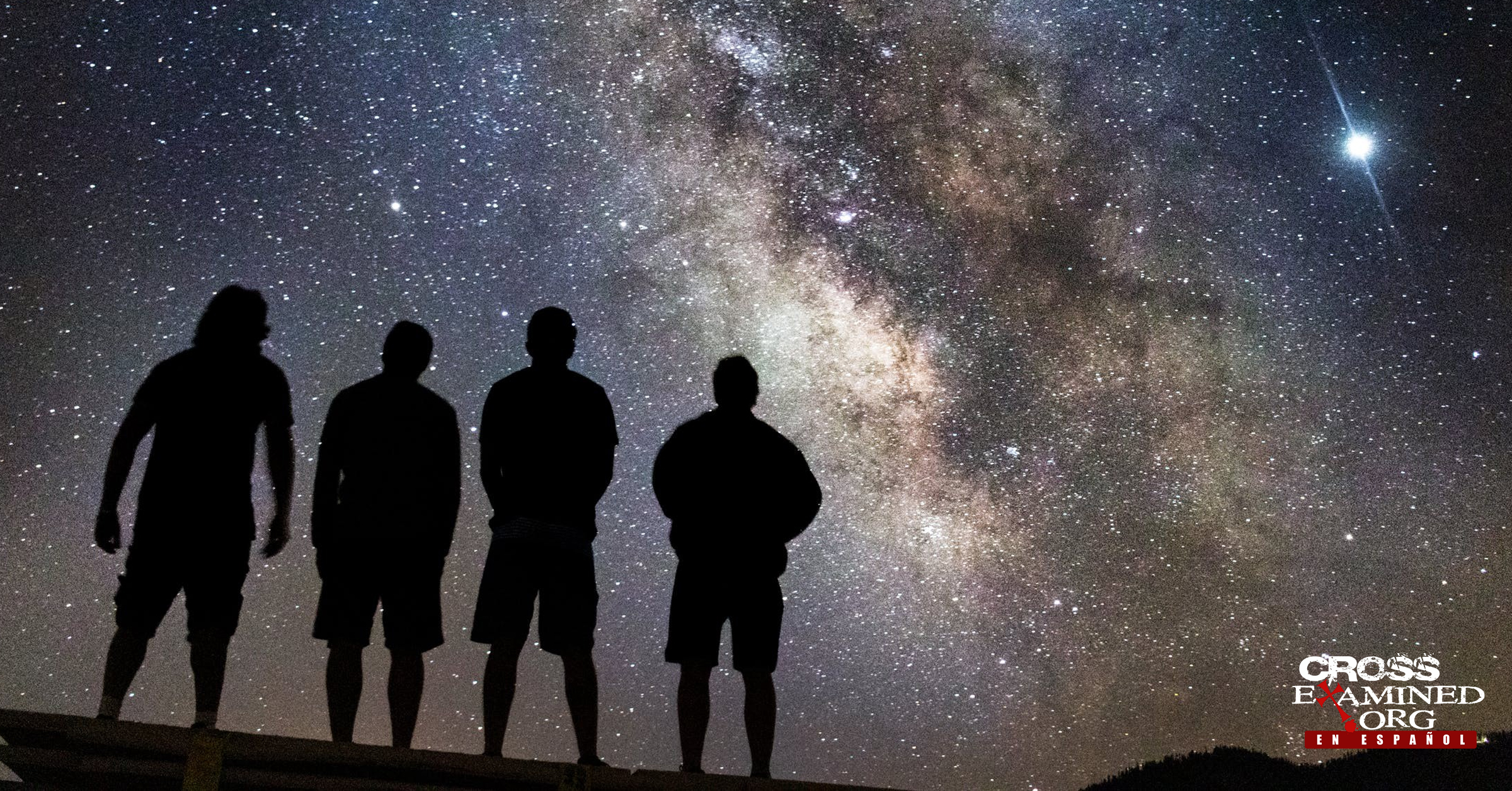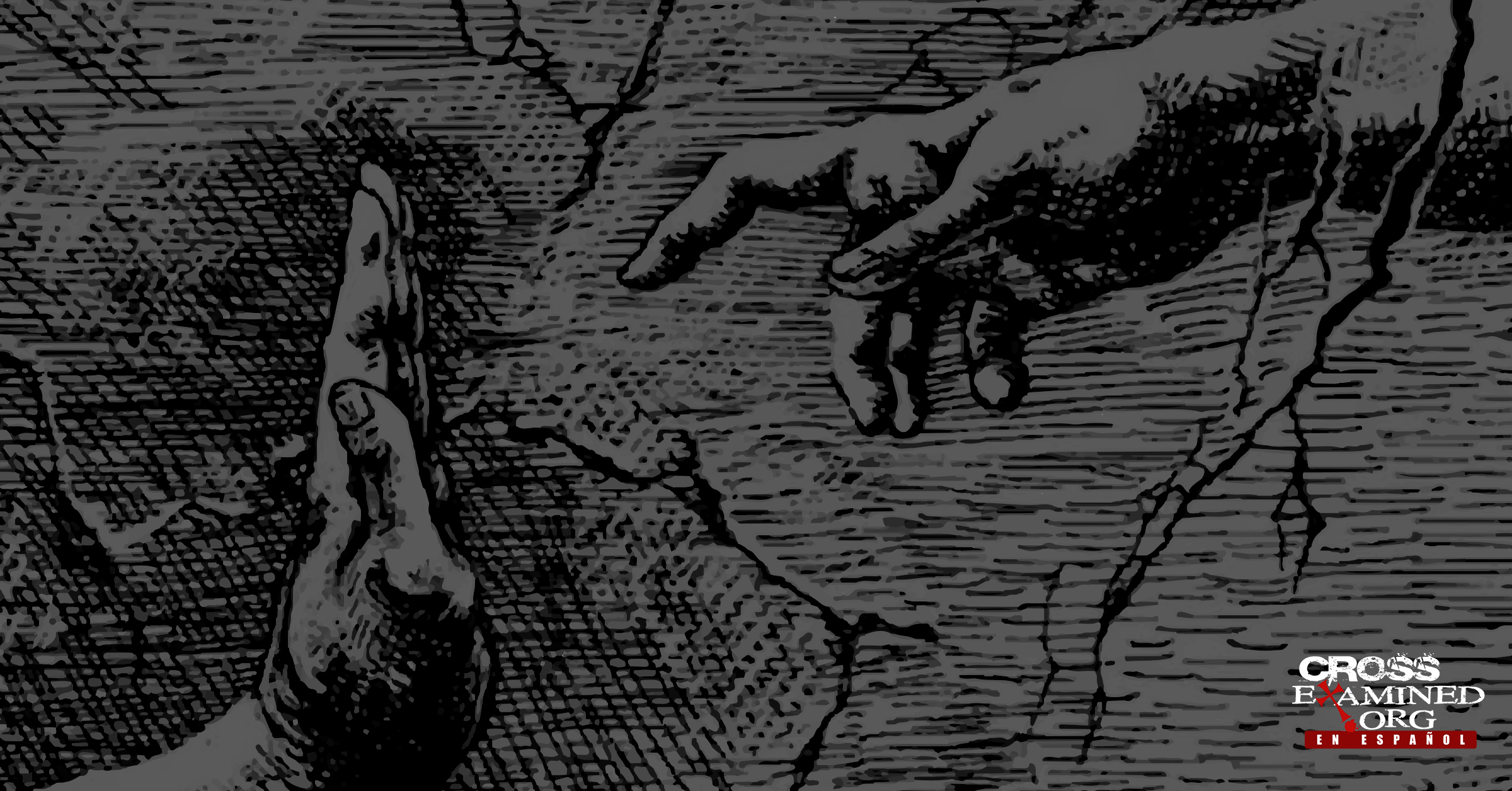As I was reviewing one of the many emails we received, one of them raised two objections against the Kalam cosmological argument, specifically the argument offered for God as the cause of the beginning of the universe. A version of the Kalam cosmological argument can be formulated as follows:
- Whatever begins to exist has a cause of its existence.
- The universe began to exist.
2.1 Argument based on the impossibility of an actual infinite:
2.1.1 An actual infinite cannot exist.
2.1.2 An infinite temporal regress of events is an actual infinite.
2.1.3 Therefore, an infinite temporal regress of events cannot exist.
2.2 Argument based on the impossibility of the formation of an actual infinite by successive addition:
2.2.1 A collection formed by successive addition cannot be actually infinite.
2.2.2 The temporal series of past events is a collection formed by successive addition.
2.2.3 Therefore, the temporal series of past events cannot be actually infinite.
2.3 Confirmation based on the expansion of the universe.
2.4 Confirmation based on the thermodynamic properties of the universe. - Therefore, the universe has a cause of its existence.
- If the universe has a cause of its existence, then an uncaused, personal Creator of the universe exists, who sans creation is beginningless, changeless, immaterial, timeless, spaceless, and enormously powerful and intelligent.
4.1 Argument that the cause of the universe is a personal Creator:
4.1.1 The universe was brought into being either by a mechanically operating set of necessary and sufficient conditions or by a personal, free agent.
4.1.2 The universe could not have been brought into being by a mechanically operating set of necessary and sufficient conditions.
4.1.3 Therefore, the universe was brought into being by a personal, free agent.
4.2 Argument that the Creator sans creation is uncaused, beginningless, changeless, immaterial, timeless, spaceless, and enormously powerful and intelligent:
4.2.1 The Creator is uncaused.
4.2.1.1 An infinite temporal regress of causes cannot exist. (2.13, 2.23)
4.2.2 The Creator is beginningless.
4.2.2.1 Whatever is uncaused does not begin to exist. (1)
4.2.3 The Creator is changeless.
4.2.3.1 An infinite temporal regress of changes cannot exist. (2.13, 2.23)
4.2.4 The Creator is immaterial.
4.2.4.1 Whatever is material involves change on the atomic and molecular levels, but the Creator is changeless. (4.23)
4.2.5 The Creator is timeless.
4.2.5.1 In the complete absence of change, time does not exist, and the Creator is changeless. (4.23)
4.2.6 The Creator is spaceless.
4.2.6.1 Whatever is immaterial and timeless cannot be spatial, and the Creator is immaterial and timeless (4.24, 4.25)
4.2.7 The Creator is enormously powerful.
4.2.7.1 He brought the universe into being out of nothing. (3)
4.2.8 The Creator is enormously intelligent.
4.2.8.1 The initial conditions of the universe involve incomprehensible fine-tuning that points to intelligent design. - Therefore, an uncaused, personal Creator of the universe exists, who sans creation is “beginningless,” changeless, immaterial, timeless, spaceless, and enormously powerful and intelligent.
Now let’s look at the following objection to what I have called the Argument of Immutability Against a Personal Cause (AIAPC):
- If God is timeless, then He is immutable.
- If God is immutable, then God cannot act to bring the universe into existence.
- God is a personal being who without creation is timeless (given by the Kalam).
- God is unchangeable (from 1 and 3)
- Therefore, God cannot act to bring the universe into existence (from 2 and 4).
As you can see, the argument attacks the premises (4.1.3), (4.2.3), and (4.2.5) of this version of the Kalam by trying to demonstrate that there is an inconsistency between God’s properties of being personal, immutable, and timeless.
How solid is the argument? Well, not that good. First, the detractor seems to think that since there is no time without the universe, God is immutable, but this is not the case. What the argument says is this:
- In the total absence of change, time does not exist, and the Creator does not change. (4.2.5.1.)
- Therefore, God is timeless (4.2.5.)
Y
- There cannot be an infinite temporal regression of changes. (4.2.3.1)
- Therefore, God is changeless (4.2.3)
Note that the argument does not say that God’s immutability is inferred from His timelessness; rather, that immutability is inferred from the impossibility of an infinite regression of changes, and timelessness is inferred from His immutability. But what do we mean by the “absence of all change?” Simple, it is not doing something different. Some activities do not require either change or time, for example, knowing something (God can know all truths in that immutable state without time). And the same could be said about our intentions: as long as these do not change, we can sustain them timelessly. So, we can say that (1) of the AIAPC is false.
Second, (2) it is false too. The premise seems to assert that the immutability of God is equivalent to immobility, which would be true if we were talking about an impersonal cause, but we have seen that we can infer that the cause is personal, so that it has volition to simply decide to create the universe from eternity. As William Lane Craig explains when he uses the example of a man sitting from eternity
…my thought experiment serves to illustrate a point about free will. A person can exist unchangeably and then freely execute a certain intention because free will does not require some predetermined condition. The very nature of free will is the absence of causal determinants. So, a free action has the appearance of a purely spontaneous event. Man can simply and freely desire to get up. So, you can get a timeless effect from an immutable cause if that cause is a free agent. Now, in the case of God, God exists unchangeably without the universe. Creation is an act of free will which, when it occurs, brings time into existence along with the universe. Therefore, to say that “from a finite time a Creator endowed with free will could have wanted to bring the world into existence at that moment” does not imply that there was a time prior to that moment.[1]
Now, at this point, there is an objection that time then does not begin with the beginning of the universe, but at the moment when God decides to bring the universe into existence, which is contradictory to the implications of the beginning of the universe of the Big Bang. Now, even when Dr. Craig does not argue that God has to deliberate temporarily, he has responded to similar objections by making a distinction between physical time and metaphysical time:
Metaphysical time is independent of physical processes, for example, if God was counting down, he could say, “3, 2, 1, let there be light,” and in this case, we would have a sequence of mental events, we would have time prior to the beginning of the universe. What would begin at the beginning of the universe would be physical time, the time which is the subject of study in the field of physics.[2]
So, with all this, we can say that the AIAPC is not a solid argument after all.
Now let’s move on to the next argument which I have called the Argument of the Timelessness Against Causation (ATAC):
- If God is timeless without creation, time intervals do not exist (granted by the kalam).
- God is timeless without creation.
- Therefore, time intervals do not exist (from1 and 2).
- If the time intervals do not exist, the cause-effect relationship cannot occur without creation.
- The cause-effect relationship cannot occur without creation (from 3 and 4)
When one analyzes this argument, one will notice that in essence, it is similar to the first one, only the immutability is omitted, but the timelessness factor is still there, specifically, that it takes time intervals for a God-type cause and effect to exist by deciding to create the universe and then another time when the universe comes into existence. To this William Lane Craig has responded on another occasion that:
[…] it seems to me that this assumption is false. For under His omniscience, God’s choices are not events, since He does not temporarily deliberate nor does Him will move from a state of indecision to a decision. He simply has free will determinations to execute certain actions, and any deliberation can only be said to be explanatory, not temporary, before His decrees.[3]
Let us now return to the matter that the cause must precede the effect. I consider (4) to be false because it depends on the unjustified belief that cause-effect cannot be simultaneous and that the cause-effect relationship cannot exist without time. But Dr. Craig has already explained that there is no reason to accept these conditions and that it is possible to have cause and effect simultaneously[4] so that the creation of the universe is simultaneous with the origin of the universe[5]. Moreover, there is the possibility that every cause and effect relationship is ultimately simultaneous:
I do not see any conceptual inconsistency in thinking that a cause and effect can be simultaneous. Philosophers will often talk about how the direction of the causal influence between A and B is perceived when A and B are simultaneous. A and B may be at the same time, they may be simultaneous, but how do you draw the line of causal influence? Is A causing B, or is B causing A? Philosophers will argue about that. So, I don’t see any inconsistency in the notion of simultaneous causation. Some metaphysicists have argued that all causes are ultimately simultaneous because until the cause impacts some other object to produce an effect, there is no way that the causal influence can jump through time, from t2 to t1, to produce the effect in t1. That cause must last until the moment t1 and then produce its effect at that moment. But there is no way that a causal influence can travel through time and jump from t2 to t1 to produce the event. So many philosophers will say that all causation is ultimately simultaneous.
I think that’s a very persuasive argument. I can’t see how you can have a causal influence by jumping through time. It seems to me that effect will not occur until the cause impacts the thing to produce its effect; for example, the cue must hit the billiard ball to set it in motion. And until it does, there is no way that the causal influence of the cue’s movement will jump in time to make the ball move.[6]
Conclusion
We have seen that the AIAPC fails because of a misunderstanding of the meaning of immutability and how immutability is inferred. On the other hand, although the ATAC is a better argument, it is not entirely sound; since there are no good reasons to reject the simultaneity of cause and effect.
Notes
[1] William Lane Craig, “God and Time” on William Lane Craig: A Reasonable Response.
[2] An Explanation of Physical Time and Metaphysical Time.
[3] Timelessness and Creation.
[6] Misunderstandings About God and the Big Bang.
Recommended resources related to the topic:
God’s Crime Scene: Cold-Case…Evidence for a Divinely Created Universe (Paperback), (Mp4 Download), and (DVD Set) by J. Warner Wallace
God’s Crime Scene: The Case for God’s Existence from the Appearance of Design (mp4 Download Set) by J. Warner Wallace
God’s Crime Scene: The Case for God’s Existence from the Appearance of Design in Biology DVD Set by J. Warner Wallace
What is God Like? Look to the Heavens by Dr. Frank Turek (DVD and Mp4) I Don’t Have Enough Faith to Be an Atheist (Paperback), and (Sermon) by Norman Geisler and Frank Turek
Jairo Izquierdo is an author and Community Manager for the Christian organization Cross Examined. He studies philosophy and theology, his current focus of study being classical logic, epistemology and molinism. He is co-founder of Filósofo Cristiano and editor at World View Media. Jairo resides in Puebla, Mexico and is an active member of Cristo es la Respuesta Church.










